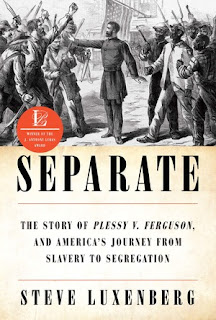 |
| Oliver Mowat is looking down |
Adam Dodek, academic and constitutional scholar,
observes in today's Globe & Mail that the Trudeau/Wilson-Raybould clash has arisen because in Canada the Minister of Justice, who had a large government department to run and important parts of a government's legislative agenda to direct, is also the attorney-general, in effect the cabinet's legal counsel, bound to give the government independent legal advice. He declares the offices create unavoidable conflicts and must be split:
The answer for why the two offices are combined is simple, if unsatisfying: That’s the way it has always been in Canada. But governments do combine and divide departments from time to time. [...] The Justice Department and this combined role, however, has remained largely unchanged since the department’s creation in 1868, with the biggest change coming in 2006, when its prosecutorial arm was spun off into a separate office, the Public Prosecution Service of Canada (PPSC). Of course, it is this relationship that’s at the heart of the current controversy involving the PPSC, the attorney-general, the Prime Minister’s Office and SNC-Lavalin.
There is no deeper historical reason that the two jobs are fused in Canada, either. In the British parliamentary system, from which Canada inherited its governance structure, the attorney-general and the Minister of Justice (Lord Chancellor and Secretary of State for Justice) have always been two separate positions. The British minister of justice is a member of cabinet, while the attorney-general is not, although the latter does attend cabinet meetings.
I know that as a historian I have to say this, but there
is a deeper historical reason. And since governance in Canada goes back before 1867, it's way back there. Indeed, the question of splitting or uniting the two roles was extensively debated, with much legal advice sought, back to the 1840s and 1850s. I was able to confirm this in very satisfying fashion by grabbing my copy of Paul Romney's 1986 classic
Mr Attorney.
Before confederation (and after), many elected representatives of the people in British North America were men who would not have even had a vote in Britain at the time: farmers, merchants, journalists, etc. Legislative and administrative expertise was often at a premium in early legislatures. Lawyers tended to have those skills, and frequently rose to positions of leadership and responsibility. Oddly, attorneys-general were among the few politicians with a substantial income from their political office, since their job then included actually going to court to represent the crown (and being paid for their time). As a result, AGs were able to devote more time to politics (particularly by delegating their courtroom chores to other lawyers) than most barely-paid legislators and ministers. As a result, the pre-confederation attorneys-general tended to be, not merely in cabinet, but to be premiers and prime ministers. Such grubby details would be incomprehensible to most British statesmen of the day, of course. British North American politicians were well aware of the British example of non-cabinet AGs, but also understood the different circumstances of North American politics.
After confederation, there was another deep historical reason for the fused role of AGs: federalism. One of the vital jobs of a provincial attorney general in Canada is to determine where the province's authority ends and where that of federal government begins. As a result, right from confederation, attorneys general were deeply involved in both the policy-making and the litigation of federal-provincial relations, and the legal and political aspects were so enmeshed as to require the AG to be in cabinet, if not actually leading it. Again, this was not a situation British politicians had to consider.
Really, none of this history need affect the question of principle that Adam Dodek addresses. In fact, mid-19th century Canadian politicians and jurists debated the question at great length and no small sophistication, all of which I could follow in some detail in Romney's book. When Canada diverges from British parliamentary norms, there are generally reasons worth exploring -- sometimes way back. And it's nice to see a case when the history book that demonstrates that is already written and in print. (I have massively under-reported here the subtlety of Romney's presentation!)
On a 21st century note: Dodek argues the attorney general should be an MP, not a cabinet minister. But would that provide the independence required? It is understood that cabinet ministers are bound by cabinet solidarity, but today MPs in Canada are equally bound by party solidarity. Since it is now Canadian political custom that any MP who dissents from party orthodoxy can be summarily dismissed from caucus (and probably denied renomination) by the party leader, could Canadians confidently believe an MP was a more independent AG than a cabinet minister could be?
Canadian particularities still influence abstract Westminster principles.







